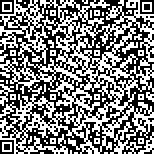| 引用本文: | 蒋向辉, 肖龙骞, 杨永平.黄褐毛忍冬生药学鉴定研究[J].广西植物,2022,42(5):738-744.[点击复制] |
| JIANG Xianghui, XIAO Longqian, YANG Yongping.Pharmacognostic identification study of Lonicera fulvotomentosa[J].Guihaia,2022,42(5):738-744.[点击复制] |
|
| |
|
|
| 本文已被:浏览 2918次 下载 808次 |

码上扫一扫! |
|
|
| 黄褐毛忍冬生药学鉴定研究 |
|
蒋向辉1,2*, 肖龙骞1,2, 杨永平3
|
|
1. 怀化学院 生物与食品工程学院, 湖南 怀化418008;2. 怀化学院民族药用植物资源研究与利用
湖南省重点实验室, 湖南 怀化418008;3. 贵州奥特药业有限公司, 贵州 凯里 556011
|
|
| 摘要: |
| 黄褐毛忍冬具有消炎、抗菌、免疫调节等多种功效,但容易与忍冬属其他物种混淆,通过生药学研究将为黄褐毛忍冬的鉴定工作和药材标准的制定提供科学依据。该文采用植物学鉴定、显微镜观察、薄层色谱鉴定和分子鉴定的方法从植物学性状、药材显微特征、薄层色谱和ITS(internal transcribed spacer)序列特征等方面对黄褐毛忍冬进行了专属性特征鉴定。结果表明:(1)黄褐毛忍冬花朵横切面分泌细胞较多,花瓣外表面有黄褐色腺毛; 花冠表皮上层细胞为多角形,蚌形花粉囊对开,花粉粒形状规则,有三角形和卵圆形两种,油室椭圆形。(2)粉末显微检测发现中柱鞘纤维呈短棱形; 木栓细胞棱角明显,呈浅黄色; 木纤维呈粗短的棱形,偶见有弯曲; 网纹导管较多,细胞腔密布草酸钙方晶。(3)薄层色谱显示黄褐毛忍冬花中三柰酚含量较高,三柰酚可作为黄褐毛忍冬的检视成分。(4)基于ITS序列系统聚类结果显示,ITS序列可以作为DNA条形码将黄褐毛忍冬、灰毡毛忍冬、华南忍冬和金银花准确地区分。上述结果表明黄褐毛忍冬生药学特征明显,该研究为黄褐毛忍冬药材鉴定、成分分析和质量标准制定提供了参考。 |
| 关键词: 黄褐毛忍冬, 显微特征, 薄层色谱(TLC)鉴定, ITS序列聚类分析, 生药学研究 |
| DOI:10.11931/guihaia.gxzw202008050 |
| 分类号:Q946; R282.71 |
| 文章编号:1000-3142(2022)05-0738-07 |
| 基金项目:湖南省教育厅重点资助项目(19A390); 湖南省教育厅创新平台项目(16K069); 贵州省科技厅社会发展项目(黔科合支撑 [2018]2823)[Supported by Key Project Fund of Hunan Provincial Department of Education(19A390); Innovation Platform Project of Hunan Provincial Department of Education(16K069); Social Development Project of Guizhou Provincial Department of Science and Technology(Qiankehe Support [2018]2823)]。 |
|
| Pharmacognostic identification study of Lonicera fulvotomentosa |
|
JIANG Xianghui1, 2*, XIAO Longqian1, 2, YANG Yongping3
|
|
1. College of Biological and Food Engineering, Huaihua University, Huaihua 418008, Hunan, China;2. Key Laboratory of Hunan
Province for Study and Utilization of Ethnic Medicinal Plant Resources, Huaihua University, Huaihua 418008, Hunan,
China;3.2. Guizhou Oute Pharmaceutical Co., Ltd., Kaili 556011, Guizhou, China
1. College of Biological and Food Engineering, Huaihua University, Huaihua 418008, Hunan, China; 2. Key Laboratory of Hunan
Province for Study and Utilization of Ethnic Medicinal Plant Resources, Huaihua University, Huaihua 418008, Hunan,
China; 2. Guizhou Oute Pharmaceutical Co., Ltd., Kaili 556011, Guizhou, China
|
| Abstract: |
| Lonicera fulvotomentosa has many functions including anti-inflammatory, antibacterial, immune regulation, etc., but it is easily confused with other species of Lonicera. The pharmacognostic research of L. fulvotomentosa will provide a scientific basis for its identification and the formulation of medicinal materials standards. This study combined botanical identification, microscopic observation, thin layer chromatography(TLC)identification, and molecular identification to identify specific characteristics of L. fulvotomentosa, from the aspects of botanical traits, microscopic characteristics of medicinal materials, TLC and ITS sequence feature. The results are as follows:(1)There are many secretory cells on the cross-section of the flower, many yellow-brown glandular hairs are on the surface of the bract has, the upper layer cell of corolla epidermis is polygonal, the pollen sac is mussel-shaped, the pollen grains are triangular or oval, and the oil chamber is oval.(2)The results of powder microscopy show that the middle column sheath fibers are short prisms; The cork cells are sharply angular and light yellow; The wood fibers are stubby and prismatic, a few of which are bent; There are many reticulated catheters, and the calcium oxalate square crystals are densely packed in the cell cavity.(3)TLC shows that the content of kaempferol in the flower of L. fulvotomentosa is higher, and kaempferol can be used as the identification component of L. fulvotomentosa.(4)The cluster analysis results based on ITS sequences show that the ITS sequence can be used as the DNA barcode to distinguish L. fulvotomentosa, L. macranthoides, L. confusa and L. japonica. This study provides a theoretical reference for the identification, component analysis, and quality standard formulation of L. fulvotomentosa. |
| Key words: Lonicera fulvotomentosa, microscopic features, thin layer chromatography(TLC)identification, ITS sequence cluster analysis, pharmacognostic study |
|
|
|
|
|